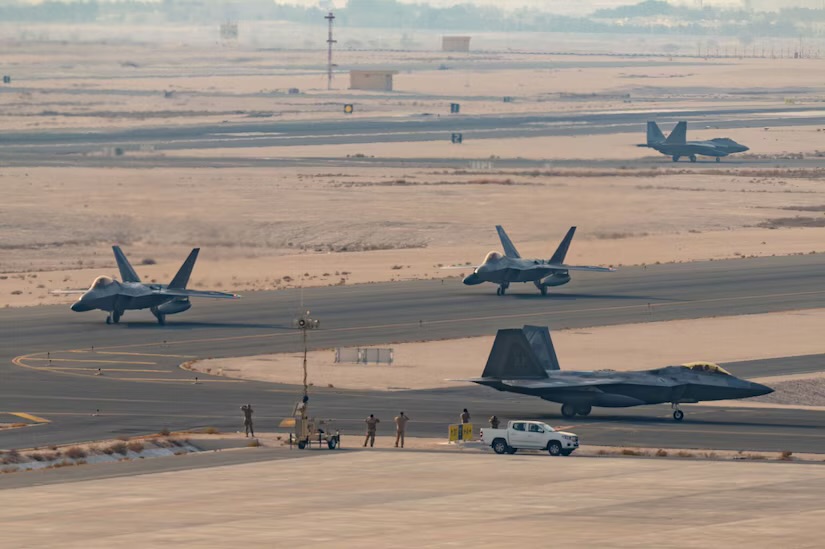The United States Department of Defense (DoD) is taking decisive action to enhance the defense posture of U.S. forces in the Middle East. This move is aimed at deterring any further aggression and reducing the chances of a broader conflict in the region. The declaration comes after Israel executed a targeted killing of Hezbollah chief Hassan Nasrallah in Lebanon on Friday, which precipitated a sharp spike in hostilities.
Increased U.S. Military Response
To ensure the safety of American personnel and interests, the DoD is taking several key measures. These actions, outlined over the weekend, highlight the United States’ commitment to maintaining peace and stability in the region. Pentagon Press Secretary Air Force Maj. Gen. Pat Ryder shared details in an official statement, noting the steps taken by Secretary of Defense Lloyd J. Austin III in response to this situation.
Reinforcing U.S. Presence in the Region
The U.S. military has taken a crucial decision to keep the USS Abraham Lincoln carrier strike group stationed in the Middle East for a longer period. Originally, the carrier was due to rotate out of the region. But this new directive keeps the carrier strike group in place. By extending its stay in the U.S. Central Command area of operations. The U.S. aims to signal its readiness and ability to respond to any threat.
The DoD has also bolstered U.S. air defense systems to counter potential aerial attacks. This includes adding more advanced defense capabilities to protect U.S. military personnel and assets stationed in key areas across the Middle East.
Additionally, U.S. forces rotating into the region will no longer replace the personnel already stationed there. Instead, they will serve as reinforcements, increasing the overall number of troops to strengthen the U.S. defense posture.
Houthis Missile Strikes Israel: Tensions Rise in Middle East
Pentagon’s Focus on Deterring Iran and Its Allies
Secretary of Defense Lloyd J. Austin III is actively overseeing these developments and providing guidance to his team. Throughout the weekend, he has remained engaged, closely monitoring the situation. In a public statement, Secretary Austin emphasized that the United States is fully committed to preventing Iran and its allied forces or proxies from taking advantage of the current crisis.
Tensions Rise Between Russia and Iran Over Zangezur Corridor
He made it clear that any attack on U.S. personnel or interests in the region will be met with strong and decisive action. The statement said, “The United States will take all necessary measures to defend our people.” This warning, which was expressly aimed at Iran and its allies. This demonstrated how determined the United States is to stop the situation from getting worse.
Understanding the Current Tensions in Middle East
The latest round of tensions in the Middle East began when Israel carried out a targeted strike against Hassan Nasrallah, the leader of the Hezbollah terror group, in Lebanon. Hezbollah has long been an Iranian-backed militant organization with a significant presence in Lebanon. The assassination of its leader has sparked concerns about potential retaliatory actions by Iran or Hezbollah supporters in the region.
The U.S. government is keenly aware that Iran and its proxies have a history of targeting American personnel and assets during times of regional instability. By increasing its military presence and issuing stern warnings, the U.S. hopes to deter any hostile actions and reduce the risk of a wider conflict.
US and UK Express Fears Over Russia-Iran Nuclear Cooperation
What This Means for U.S. Forces
U.S. military personnel stationed in the Middle East now benefit from a heightened defense posture. This posture directs more resources and support toward ensuring their safety. The USS Abraham Lincoln carrier strike group has extended its deployment, and additional air defense capabilities are in place. These measures provide extra layers of security for American forces on the ground. They also send a clear message to adversaries: any attempt to harm U.S. personnel will meet significant military force. These actions protect U.S. interests and reassure regional allies. The U.S. remains committed to maintaining stability and preventing the spread of violence.
U.S. Commitment towards Middle East’s Stability
The Pentagon’s recent measures highlight the ongoing commitment of the United States to peace and security in the Middle East. By reinforcing its military presence, the U.S. hopes to prevent further escalation and maintain a deterrent against any potential threats. The U.S. has made it clear that it is not seeking a broader conflict but is prepared to respond decisively if its personnel or interests are attacked.
Future Prospects for Middle East
In light of the increased tensions following the assassination of Hezbollah leader Hassan Nasrallah. The U.S. Department of Defense has taken swift action to strengthen its defense posture in the Middle East. These measures, including extended deployments and enhanced air defences, underscore the United States’ resolve to safeguard its citizens and stop the situation from getting worse.
With Secretary of Defense Lloyd J. Austin III at the helm, the U.S. military stands ready to respond to any threats that may arise. Ensuring the safety of its personnel and working to maintain stability in this volatile part of the world.
To read original news visit DOD website.

